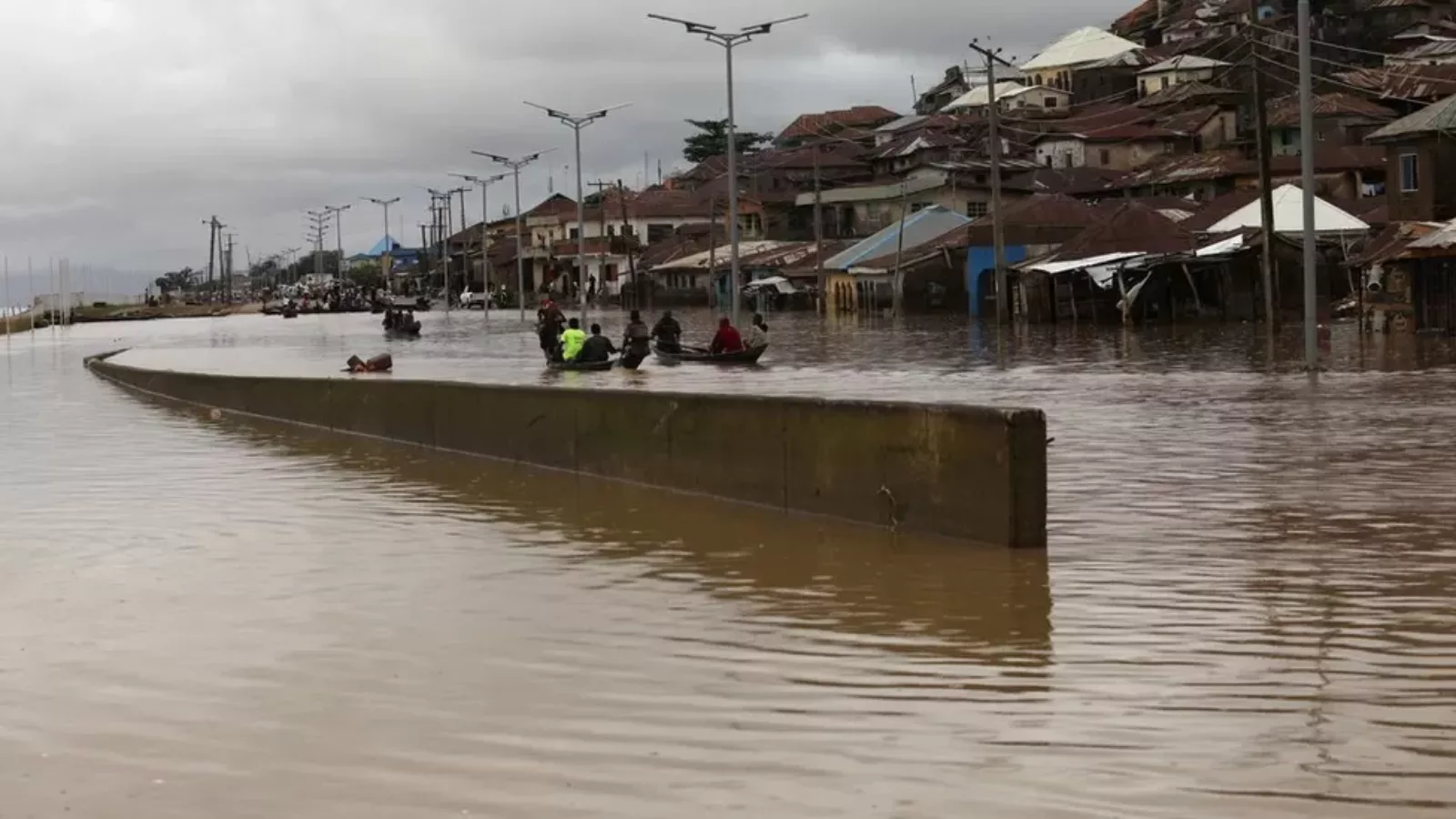Seasonal flooding is not out of the ordinary for Nigeria, but the recent flooding has become an overwhelming disaster killing more than 600 people. Experts say poor planning and infrastructure have worsened the flooding fatalities and damage. There are significant concerns about the many impacts of this increased flooding, such as the increased spread of disease, food supply, and more.
BBC: Nigeria floods: ‘Overwhelming’ disaster leaves more than 600 people dead
Ishaq Khalid and Elsa Maishman; October 16, 2022
Recent flooding in Nigeria has become an “overwhelming” disaster, and many states were not properly prepared for them despite warnings, the minister for disaster management has said.
More than 600 people have died in the worst flooding the West African nation has seen in a decade.
Some 1.3 million people have been displaced, and more than 200,000 homes have been destroyed.
Flooding is expected to continue until the end of November.
Nigeria is used to seasonal flooding, but this year has been significantly worse than usual.
The government has said unusually heavy rains and climate change are to blame.
The emergency release of excess water from dams both in Nigeria and in neighbouring Cameroon was another key factor causing devastating flooding.
Experts also say poor planning and infrastructure have exacerbated the damage.
Since the flooding began in early summer, large swathes of farmland have been destroyed.
There are concerns about increased spread of disease, and food and fuel supplies have also been disrupted.
In a press conference on Sunday, Nigeria’s minister for humanitarian affairs and disaster management, Sadiya Umar Farouk, called on local authorities to evacuate people living in the most high-risk areas.
Authorities are already providing food and other support to those affected, she said.
She added that despite ”concerted efforts” and early warnings, many state governments “did not prepare” for the flooding.
The disaster has affected 27 of Nigeria’s 36 states.
Part of the problem is that people return to their homes on flood plains each year after the water levels subside.
Many do not have the means to relocate.
Nigeria’s economy has been battered in the past year, with inflation at an all-time high and many communities struggling to cope.
The World Food Programme and the UN’s Food and Agriculture Organisation said last month that Nigeria was among six countries facing a high risk of catastrophic levels of hunger.
Nigeria’s meteorological agency has warned that the flooding could continue until the end of November in some states in the south of the country, including Anambra, Delta, Rivers, Cross River and Bayelsa.
Photo: Getty Images
